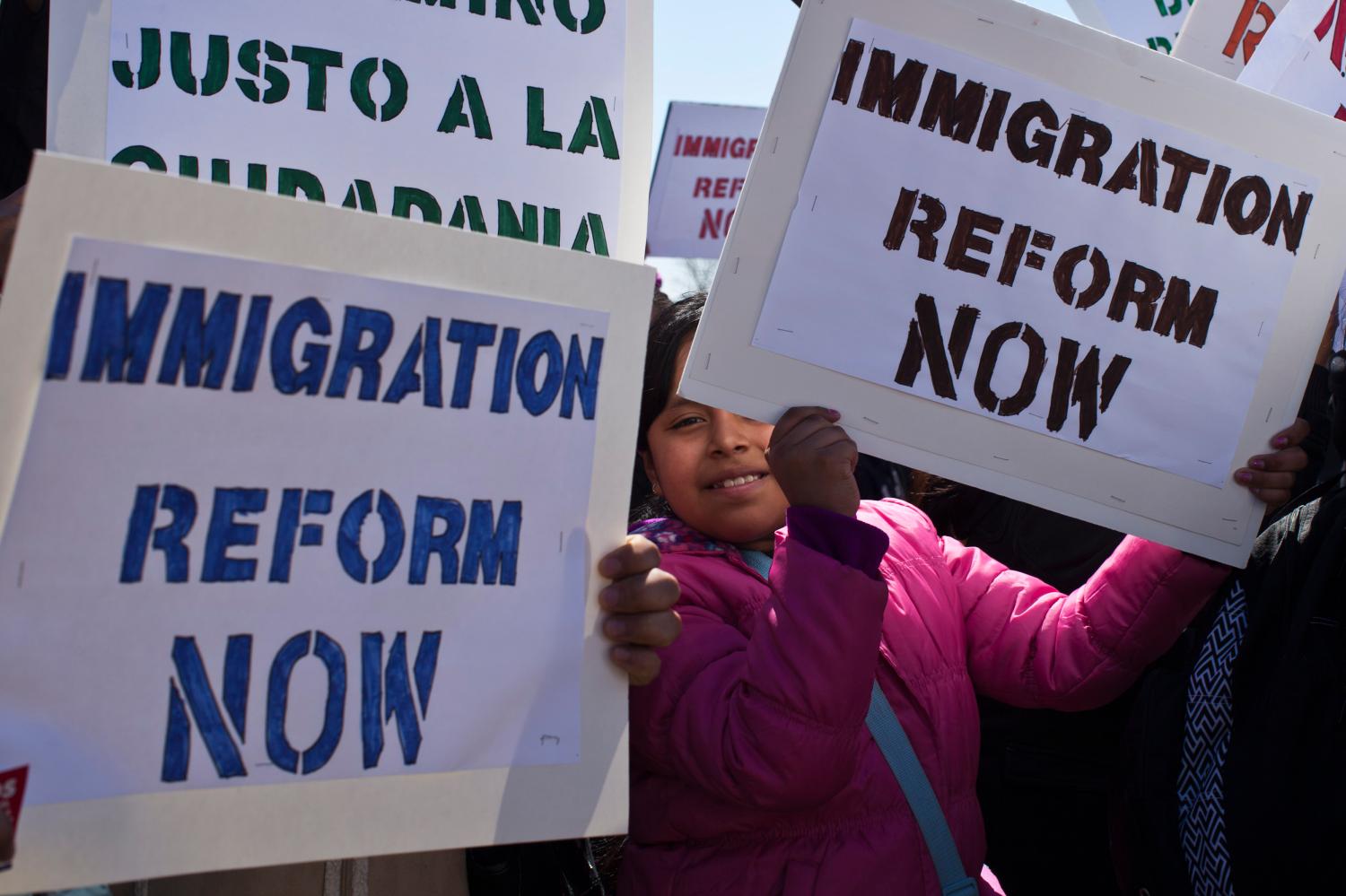Last week, we saw the first modifications to immigration, specifically student visas, in light of the Boston Marathon bombings. Two of Dzhokhar Tsarnaev’s friends, Kazaks in the United States on student visas, were “charged with conspiring to obstruct justice.” Now, as reported by the Associated Press, “The Homeland Security Department ordered border agents to verify that every international student who arrives in the U.S. has a valid student visa.”
While many senators were visiting their districts during the recess, there’s still plenty to report on. May Day rallies in support of comprehensive reform and citizenship were scattered throughout the country, including an event with Sen. Harry Reid in Las Vegas. Sen. Orrin Hatch “appears willing to support” reform that includes a pathway to citizenship. “Gang of Eight” Sens. John McCain and Lindsey Graham were on the town hall offensive to promote their proposed legislation. Markup begins this week; be sure to check out this Politico piece, detailing what kind of amendments you can expect to see and from whom.
Representatives in the House are slowly releasing individual legislative pieces. The first, introduced by Reps. Bob Goodlatte and Lamar Smith, is an expansion of E-Verify. The second, introduced by Goodlatte, is an agricultural guestworker program. With a flexible cap but 500,000 visa minimum, it looks like there is a lot to work out between the House and Senate.
President Obama visited Mexico and Costa Rica last week, and immigration reform became a central focus. Prior to his trip, Obama held hosted an advocate briefing at the White House. As reported by the Washington Post, Janet Murguía, President of the National Council on La Raza was in attendance and recalled Obama’s remarks: “He said, ‘If the bill were presented on my desk today, I would sign it,’” and “He looked at the advocates and said, ‘We’re not going to get everything we want in this.’”
Sen. Marco Rubio continues to be at the front and center of immigration reform. Over the last week, we learned Rubio doesn’t have high hopes for the Schumer-McCain bill in the House, considers provisions for same sex couples a deal breaker, and published a high-profile op-ed in the Wall Street Journal. The New York Times also reported on the relationship between Rubio and former Sen. Jim DeMint, his one-time “mentor.”
If there is a rift between Rubio and DeMint, it looks like it will only continue to grow. Today DeMint’s Heritage Foundation released a report on the fiscal impacts of the Schumer-McCain bill, making immigration reform look very costly. The libertarian Cato Institute especially pushes back on Heritage’s methodology, already releasing a rebuttal. The reason? Heritage uses a “static fiscal scoring” as opposed to “dynamic fiscal scoring” that assesses the impact among all sectors of the economy.
While Heritage’s report on the costs of immigration reform will cause a stir, I’ve been enjoying NPR’s coverage of the economic impacts of different aspects of immigration. Stories on costs of “farmworker shortages,” impacts of reform on “low-wage black workers,” and how “major American companies benefit from undocumented workers” have all been on-point.
The Brookings Institution is committed to quality, independence, and impact.
We are supported by a diverse array of funders. In line with our values and policies, each Brookings publication represents the sole views of its author(s).




Commentary
This Week in Immigration Reform: Senate Markup
May 7, 2013